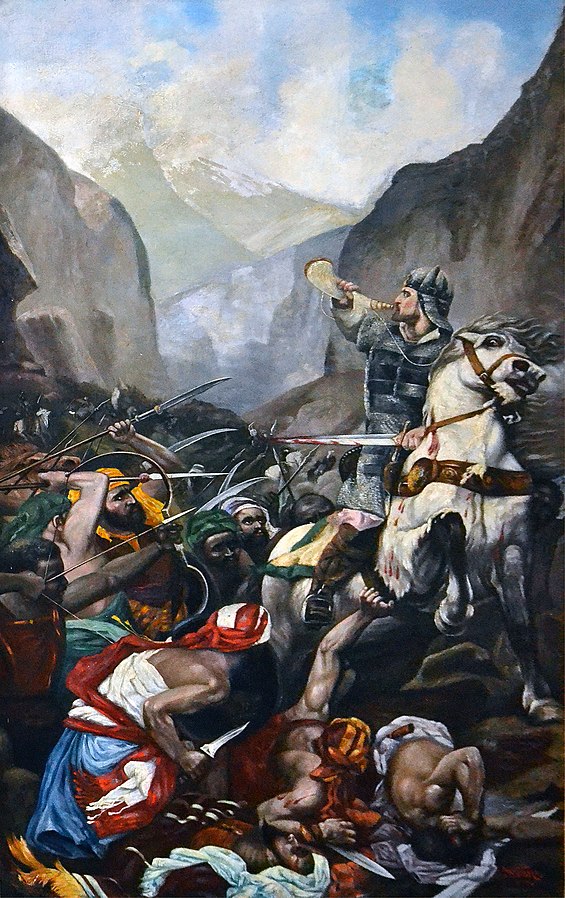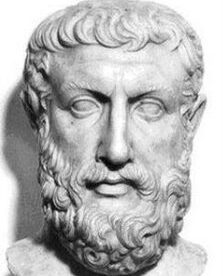
Available from Abebooks and Thriftbooks
Book Length: 176 pages
Considering the Song of Roland, it is a grave disgrace that this epic has been reduced to relative obscurity. As men’s minds are always in need of inspiration, a need for salutary reading accompanies this; therefore among many other works, this great literary triumph is in need of rediscovery in our times.
Similar to the Iliad of Homer, The Song of Roland is a work of legend which draws from the real events of history. Legend tends to do this in any respect, but the way in which the cryptic authors of these epics do so is as elevating as it is edifying. The largest contrast between the two texts on a thematic level is that the unnamed author of The Song of Roland was a Catholic, while Homer was a Greek pagan. Such a distinction makes for a world of difference between the two authors; for instance, the allusions made in this medieval work to the Sacred Scriptures and the valorization of martyrdom would have been alien to the world of Homeric Greece. These uniquely Christian aspects of the text are worthy of further examination, as they supply key elements of the form it subsists in, this being the poetic epic. The epic is an inheritance from Antiquity, as this form was used by Homer first, and other great writers following him, such as Virgil. Thus in this work, Christian content meets a form invented by pagans, and to magnificent results.
For instance, the lord Ganelon betrays his unwitting king, Charlemagne, and his nephew, Roland, and his “sweet land of France” in an orchard. The fact that the betrayal which initiates the tragedy of this work occurs in a garden is no accident; the scene is meant to remind the reader of Judas Iscariot’s betrayal of Christ in the garden of Gethsemane. As the poet tells us:1
King Marsilion went forth into the orchard,
he takes with him the greatest of his men;
Blacandrin came, that gray-haired counselor,
and Jurfaleu, Marsilion’s son and heir,
the Algalife, uncle and faithful friend.
Said Blacandrin: “Lord, call the Frenchman back.
He swore to me to keep faith with our cause.”
And the King said: “Go, bring him back here, then.”
He took Ganelon’s right hand by the fingers,
leads him to the orchard before the King.
And there they plotted the criminal treason.
(Laisse 38. 501-511)
The “criminal treason” is not the only allusion to the Bible present in this work; in fact, the final battle between the master of the pagan world, Lord Amiral, “the ancient who outlived Homer and Virgil” (Laisse 189. 2616) and the master of Christendom, the Emperor Charlemagne, is evidently intended to mirror Armageddon. Considering that Fredric Goldin, the translator of this text, touches more on this example of allusion in his introductory essay and does so with respectable erudition, a further analysis will not be attempted here.
Roland, the titular character of the epic, is presented as both a great warrior and a martyr. His fate is ironically foreshadowed early in events of the poem by Charlemagne. At this point in the plot, Roland has accepted the daunting task of leading the Frankish rear guard out of contested Spain. In asking the brave knight to accept additional troops so that he may more securely fulfill his duty, the Emperor says:
Let them serve you, it is your salvation.
(Laisse 63. 786)
But he refuses the generous proposition:
“None of that!” said the Count. “May God strike me
if I discredit the history of my line.
I’ll keep twenty thousand Franks—they are good men.
Go your way through the passes, you will be safe.
You must not fear any man while I live.”
(Laisse 63. 787-790)
Roland refuses on account that it will bring disgrace to the “history” of his “line” to incorporate these seemingly unnecessary reinforcements into his army. Putting the safety of his king over his own regard, he trusts in his strength as a warrior and the “good men” already under his command, not foreseeing the effects of the betrayal which will manifest at Roncevaux. In view of what is to come, therefore the “salvation” of the Count, taken in the context of his mortal life, has been forfeited here; yet he will obtain “salvation” in another sense—eternal life—by means of his heroic last stand in the Pyrenees. Such an interpretation is confirmed by the exhortation of Archbishop Turpin, a member of Roland’s party, to the Frankish soldiers as they recognize their peril in facing the unexpected Mohammedan horde:
If you die here, you will stand up holy martyrs,
you will have seats in highest Paradise.
(Laisse 89. 1134-1135)
The defeat at Roncevaux ends in ultimate triumph not only for the Catholic Franks, who obtain the victory of martyrdom, but also for their Emperor Charlemagne and their nation. In an allegorical sense, this “crucifixion” therefore becomes the precedent for a “resurrection”.
Our age suffers from a looming sense of despair, of fatalism; how it must hear the words of St. Augustine that, “Every where the greater joy is ushered in by the greater pain.”2 Does not the need for this work, which illustrates this truth in such an exalted manner, therefore present itself more strongly in this message than in any other? Therefore, it is recommended that Catholics read this epic, especially men. We have much to emulate from Roland, the fairest flower of chivalry.
